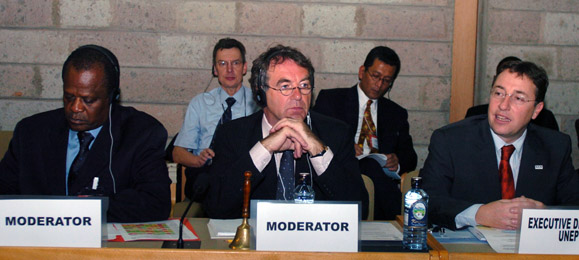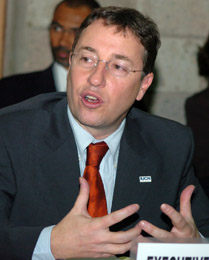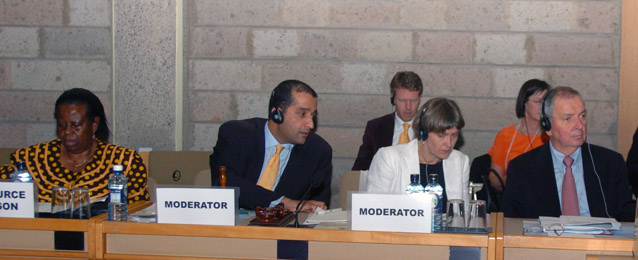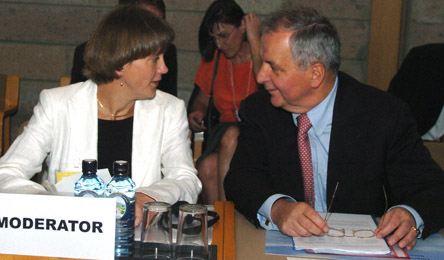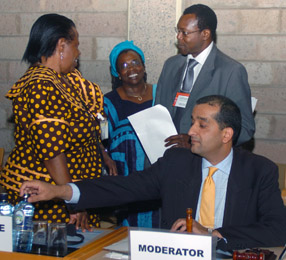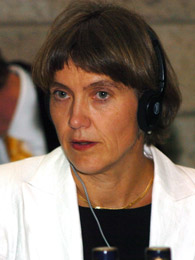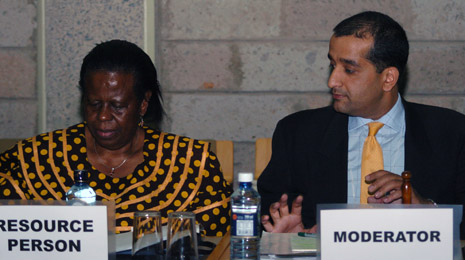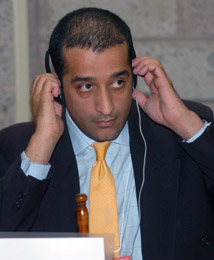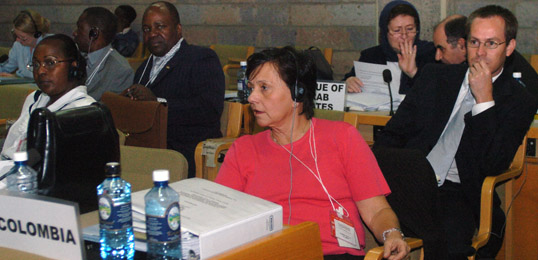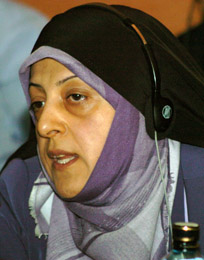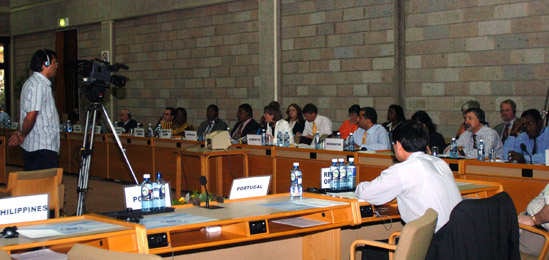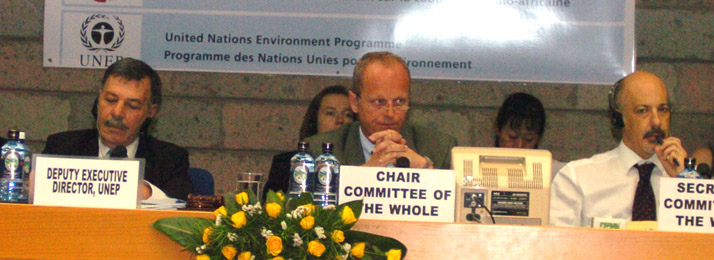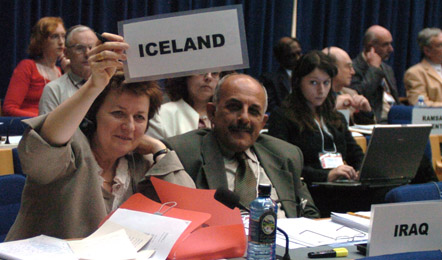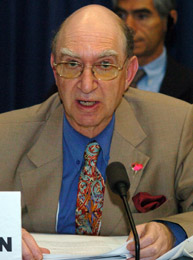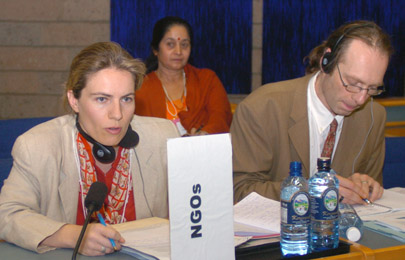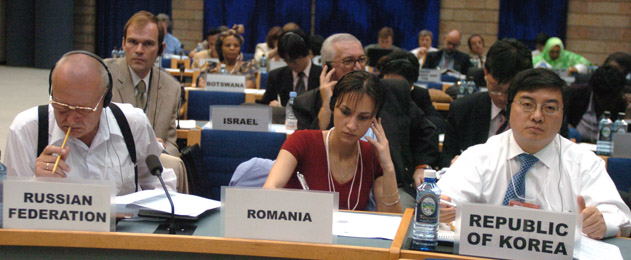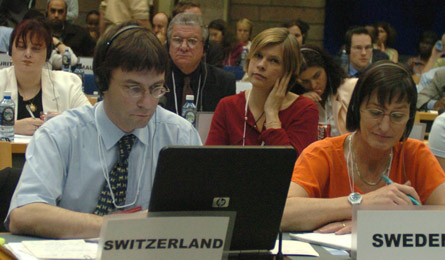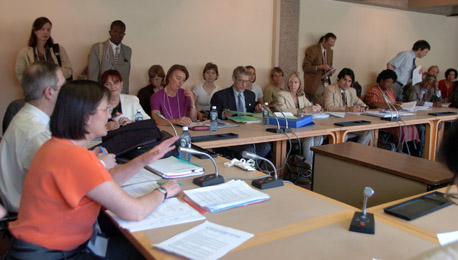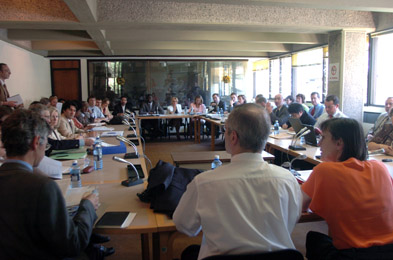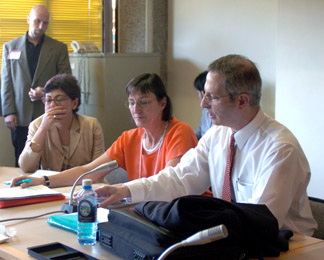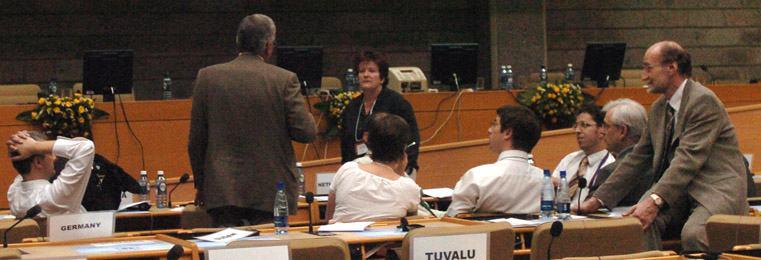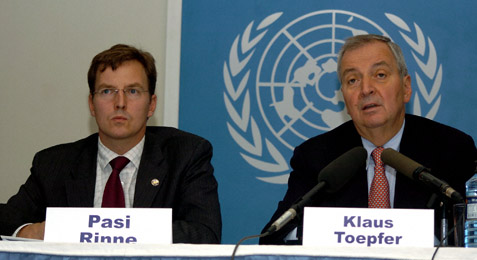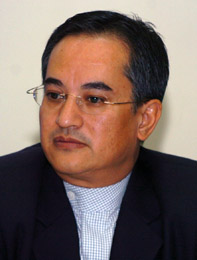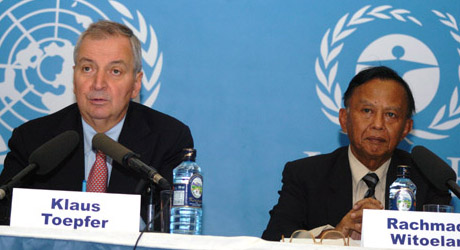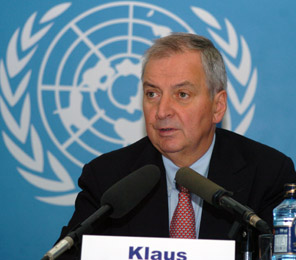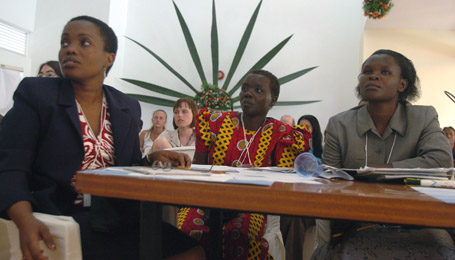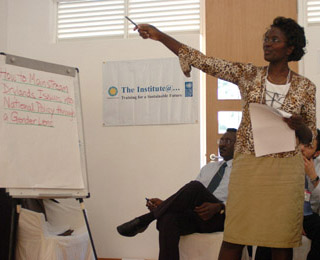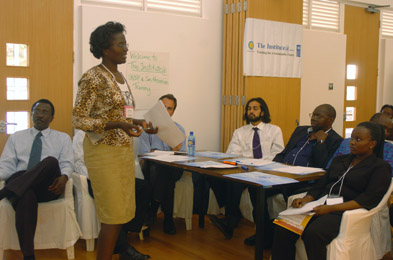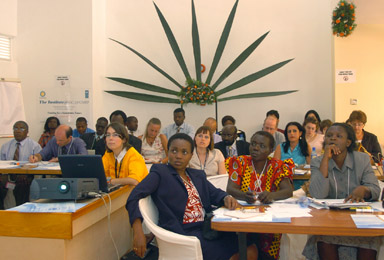|
|
|
GENDER EQUALITY: Moderators Malik Amin Aslam Khan, Pakistan's Minister of State for the Environment and Lena Sommestad, Sweden's Environment Minister, Ministry of Sustainable Development, and UNEP Executive Director Klaus Töpfer. In her keynote address, Rejoice Mabudhafasi, South Africa 's Deputy Minister of Environmental Affairs and Tourism (left), stressed: the importance of women in decision-making; a gender focus on climate change vulnerability and mitigation; and the impossibility of sustainable development without women's empowerment and gender equality.
|
|
|
|
|
|
| |
| Carmen Elena Arevalo Correa, Vice Minister of the Environment, Colombia (right),
supported involving UNICEF and UNESCO in women empowerment processes and enabling women empowerment. She said education is the most important tool for women to gain access to working positions at all levels, in particular for policy positions, and urged men to take more responsibilities in the domestic realm. |
| |
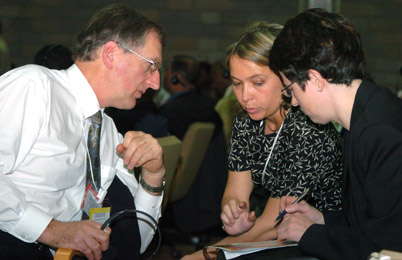 |
|
|
Phillipe Roch , State Secretary, Director, Swiss Agency for the Environment, Forests and Landscape
Masoumeh Ebtekar, Vice-President of Iran and Head of the Department of Environment, said women in decision-making roles are needed both at high and grass root levels, and women are crucial in the mainstreaming of environmental issues in rural areas.
|
|
|
|
Shafqat Kakakhel, UNEP Deputy Executive Director, COW Chair Beat Nobs, and Secretary of the COW Gaetano Leone |
| |
|
| |
| On chemicals management, Tanzania said mercury is used in artisanal gold mining, and presents problems that need a holistic approach |
| |
| |
On chemicals management, Iceland (left), highlighted a legally-binding instrument on mercury and other heavy metals as the best long-term solution. On water, Peter Bridewater, Executive Secretary, Ramsar Convention (right), spoke on its role in promoting Integrated Water Resource Managament. |
| |
|
| |
| Regarding chemicals management, Elena Lymberidi, speaking on behalf of the Civil Society Forum, called for restrictions on the use of mercury. |
| |
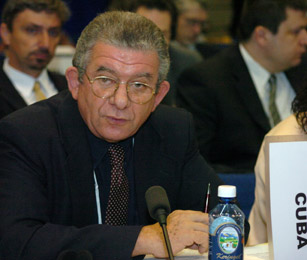 |
|
|
Cuba, speaking for the G-77/China (left), said any decision on chemicals management must reflect the need to consider alternatives to chemicals. Switzerland (center) said further action by UNEP would contribute to the SAICM process, and a legally-binding instrument on mercury and other heavy metals is the best long-term solution. He further noted that a legally-binding treaty would ensure financial support to developing countries, and called for studies on lead and cadmium. |
|
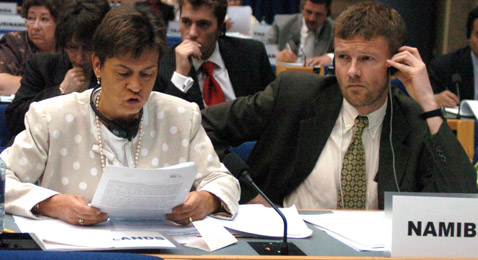
|
| |
|
The Netherlands, for the EU, said the EU strongly advocates concrete international action on mercury, in particular through a legally-binding instrument. |
| |
|
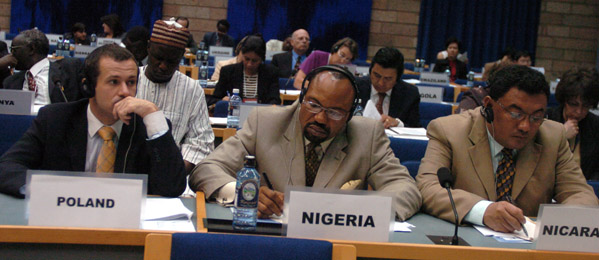
|
|

|
|
Steve Lonergan, Director, UNEP's Division of Early Warning and Assessment, Ivor Baste, Assessment Masa Nagai, UNEP's Division of Policy Development and Law, Shafqat Kakakhel, UNEP Deputy Executive Director, and COW Chair Beat Nobs |
|
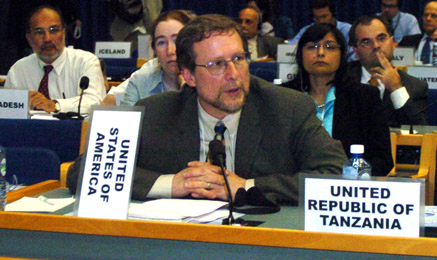
|
|
On the draft decision on keeping the world environment situation under review, John Matuszak, US (above), said it was opposed to the paragraph on climate change. Chair Nobs said the draft decision would be forwarded to the drafting group for further consideration. |
| |
| A contact group chaired by Viveka Bohn (Sweden) (left), began discussions on the omnibus decision on chemicals management. Chair Bohn proposed, and delegates agreed, to focus on the preambular text of the mercury and SAICM-related decisions. |
| |
| |
|
| Contact Group: Budget and Programme of Work |
| |
On the draft decision on the Programme of Work and Budget for the biennium 2006-2007, delegates approved a total of US$144 million for the Environment Fund. Canada and the US noted the increase over the previous biennium and called on UNEP to prioritize activities. Many delegations supported the EU's proposal to urge governments to support further strengthening of the Environment Fund through a wider application of the voluntary indicative scale of contributions.
EU delegates consult on the budget (right and below) |
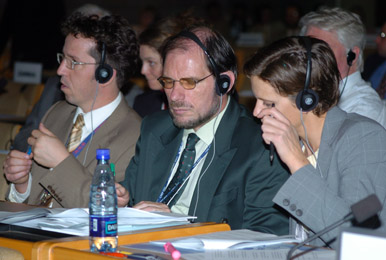 |
| |
|
|
| Press Conference: UNEP Asian Tsunami Report |
UNEP RELEASES REPORT ON TSUNAMI'S AND REDUCING VULNERABILITY TO FUTURE COASTAL HAZARDS
During a press conference, UNEP launched its report: After the Tsunami- Rapid Environmental Assessment. The Report covers Indonesia, the Maldives, Somalia, Sri Lanka, Thailand, the Seychelles and Yemen, and includes recommendations and findings regarding: wastes; water supplies, sanitation and soil fertility; coral reefs, mangroves and wildlife; and beach erosion and coastal vegetation. The report was coordinated by UNEP's Task Force and prepared in collaboration with UNEP's Regional Offices in Asia Pacific and Africa , other UN bodies, governments and NGOs. The report is available at http://www.unep.org |
| Pasi Rinne, Chair, Asian Tsunami Task Force, UNEP Executive Director Klaus Töpfer, GC President Rachmad Witoelar and Surendra Shrestha, Regional Director for Asia and the Pacific |
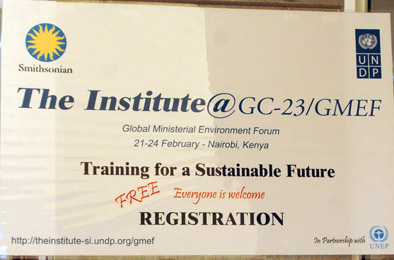 |
The Institute @GC-23/GMEF is holding training sessions during the conference on: training African journalists on how to profile the implementation of the MDGs; maintreaming drylands issues into national policy through a gender lens; improving urban air quality through clean fuels and vehicle technologies; and moving towards sustainable wastewater management in coastal cities.
For more information and to register for the remaining courses on urban air quality and sustainable wastewater management, visit: http://theinstitute-si.undp.org/gmef
|
| Participants during the seminar on maintreaming drylands issues into national policy through a gender lens |
|
|


